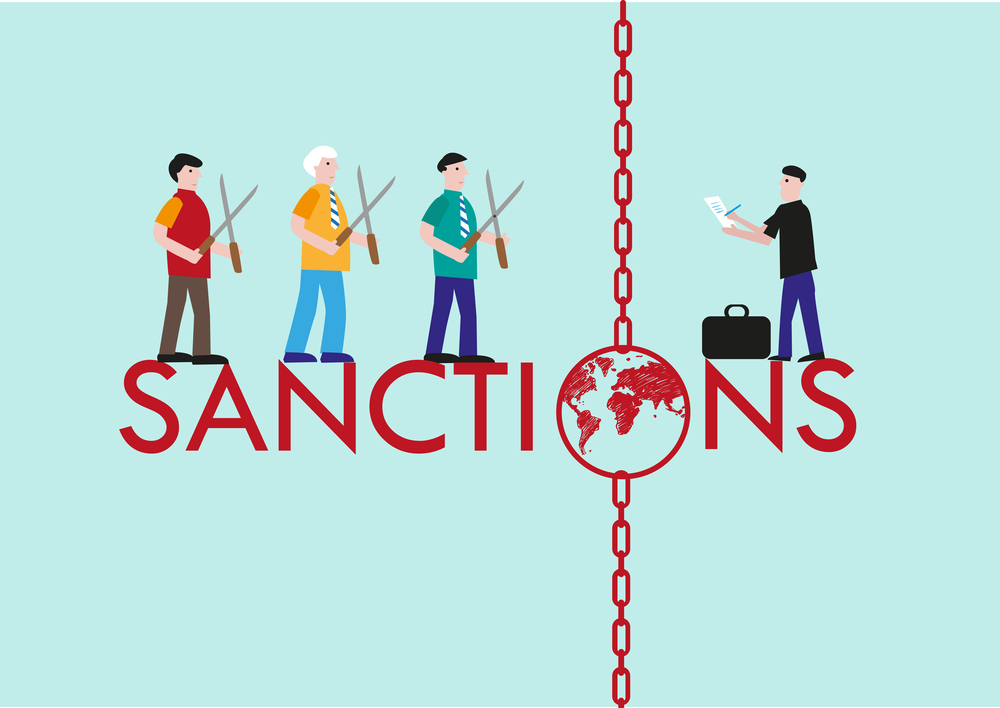In an increasingly interconnected world, economic sanctions have emerged as a powerful instrument used by governments and international bodies to enforce foreign policy and combat illegal activities. These sanctions, ranging from trade sanctions to targeted restrictions, play a crucial role in the global effort to promote security, protect human rights, and prevent money laundering and terrorism financing.
What Are Economic Sanctions?
Economic sanctions are restrictive measures imposed by countries or international organizations like the United Nations or the European Union to influence a specific nation, entity, or individual’s behavior. These sanctions can take various forms such as embargoes, asset freezes, travel bans, or restrictions on financial transactions.
Sanctions are typically used as an alternative to military force, aiming to coerce or punish violators of international laws or norms. Whether imposed for political reasons or to address anti-money laundering (AML) concerns, economic sanctions significantly impact global commerce and compliance.
Trade Sanctions and Embargoes: Restricting International Transactions
Among the most common types of economic sanctions are trade sanctions and embargoes. Trade sanctions typically restrict the import or export of specific goods and services to or from a targeted country. An embargo, on the other hand, is a broader prohibition on all trade and economic activity with a particular nation or region.
These tools are used to pressurize governments that engage in human rights violations, nuclear proliferation, or military aggression. Countries under embargo or trade sanctions often face economic isolation, which can significantly affect their economic stability and international relations.
Sanctions Screening: A Compliance Essential
As regulatory scrutiny increases, businesses must adopt robust sanction screening measures to avoid inadvertently engaging with sanctioned entities. Sanctions screening is the process of checking individuals, businesses, and transactions against global watchlists to ensure compliance with applicable sanctions regulations.
This process is critical in AML sanctions screening, where financial institutions, fintech companies, and multinational corporations must ensure they are not facilitating transactions involving sanctioned parties.
How the Sanctions Screening Process Works
The sanctions screening process typically involves the following steps:
- Review & Escalation: Investigating true matches and reporting suspicious transactions to regulatory authorities
List Monitoring: Regular updates from global sanctions lists such as OFAC (Office of Foreign Assets Control), UN, EU, and others.
Name Matching: Screening client names, vendors, and transactions against these lists.
Risk Scoring: Assigning risk levels based on matches and other risk indicators.
Review & Escalation: Investigating true matches and reporting suspicious transactions to regulatory authorities.
Modern businesses rely on sanctions screening solutions that are automated, accurate, and continuously updated to keep pace with evolving regulations.
Sanctions Screening Solutions: Key Features and Benefits
Effective sanctions screening solutions should include:
- Real-time screening capabilities
- Integration with global watchlists
- Fuzzy matching algorithms to detect partial or alias matches
- Adverse media screening to capture negative news
- Customizable risk profiles and escalation workflows
Implementing the right screening software helps businesses ensure regulatory compliance and avoid heavy penalties, which may result from unknowingly conducting business with sanctioned individuals or entities.
Secondary Sanctions: Indirect Risks in Global Trade
Secondary sanctions are another critical aspect of economic sanctions regimes. Unlike primary sanctions, which target entities within the sanctioning country’s jurisdiction, secondary sanctions penalize non-domestic companies and individuals for doing business with sanctioned parties.
For instance, a European company doing business with a sanctioned Iranian firm could face penalties from the U.S. government under its secondary sanctions regime. These measures significantly raise the stakes for global companies, making compliance with international sanctions even more crucial.
The Role of AML Sanctions Screening in Financial Institutions
Financial institutions are on the front line of the fight against money laundering and terrorism financing. Biometric AML is a mandatory part of their Know Your Customer (KYC) and Know Your Business (KYB) processes. Failing to comply can lead to severe regulatory penalties, reputational damage, and operational risk.
Advanced AML compliance tools now incorporate economic sanctions, adverse media, and politically exposed person (PEP) data to offer a comprehensive risk profile before onboarding clients or processing transactions.
Why Economic Sanctions Matter in Today’s World
From preventing nuclear proliferation to punishing cybercrime, economic sanctions are now one of the most widely used tools in international diplomacy and compliance. Businesses operating globally must understand the implications of these sanctions to avoid unintentional violations.
Ignoring sanctions can not only lead to regulatory fines but also cause serious damage to a company’s credibility and future growth prospects. Thus, integrating effective sanctions
screening solutions into operational workflows is not just a compliance requirement—it’s a strategic business necessity.
Final Thoughts
With the global regulatory landscape constantly evolving, the importance of understanding and complying with economic sanctions cannot be overstated. Whether dealing with trade sanctions, embargoes, or secondary sanctions, organizations must remain vigilant and equipped with reliable AML sanctions screening tools.
Staying compliant not only protects your business from legal repercussions but also contributes to a safer and more transparent global financial system.





